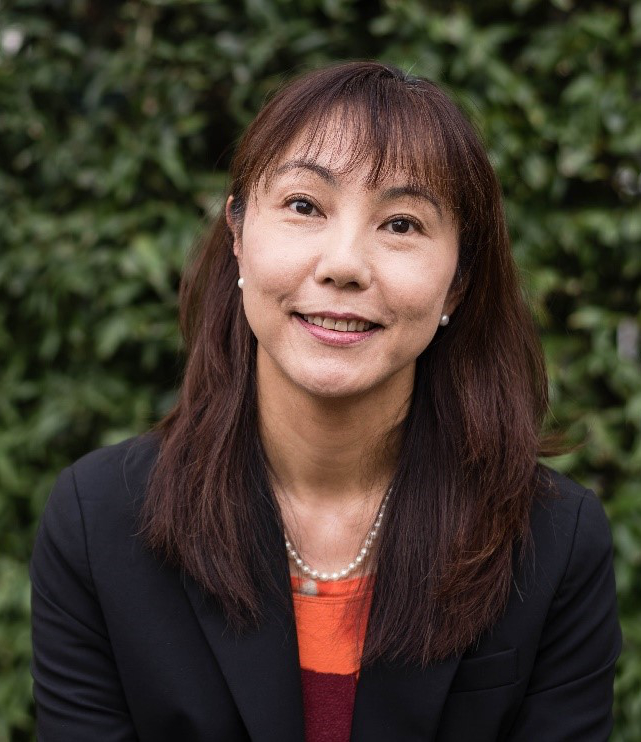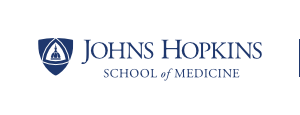JHSPH Alumni Profiles
Dr. Miho Tanaka
 Dr. Miho Tanaka completed her PhD at the Bloomberg School of Public Health in the Department of Health, Behavior and Society. Prior to her work at Hopkins, Dr. Tanaka received her MPH at Oregon State University with a focus on International Health and Maternal and Child Health. After completing the MPH, Dr. Tanaka worked for the World Bank and global health consulting firms for 12 years before enrolling in the JHSPH. After completing her PhD in the JHSPH, she worked as a Scientific Program Analyst at the National Cancer Institute (NCI). Dr. Tanaka is currently a Scientific Program Manager for the U.S. Department of Veterans Affairs in the Health Services and Research Division.
Dr. Miho Tanaka completed her PhD at the Bloomberg School of Public Health in the Department of Health, Behavior and Society. Prior to her work at Hopkins, Dr. Tanaka received her MPH at Oregon State University with a focus on International Health and Maternal and Child Health. After completing the MPH, Dr. Tanaka worked for the World Bank and global health consulting firms for 12 years before enrolling in the JHSPH. After completing her PhD in the JHSPH, she worked as a Scientific Program Analyst at the National Cancer Institute (NCI). Dr. Tanaka is currently a Scientific Program Manager for the U.S. Department of Veterans Affairs in the Health Services and Research Division.
My office in The Department of Veterans Affairs (the VA) funds intramural research. Researchers at the VA apply for intramural research funding through a similar grant mechanism as is operated by the NIH for extramural funding. I manage a study section twice a year for applications in bioinformatics, data sciences, and sometimes genomic medicine. Sometimes I also manage special emphasis panels. After we review the applications, my director decides which applications to fund based on their scores. I research if there is overlap with studies previously funded by the VA, the NIH, or elsewhere to see if we are funding something that has already been done and make funding recommendations based on that search. After we announce the funding recommendation, there are additional administrative steps called “just-in-time” (JIT). This is when the investigator has to submit IRB approval, a project budget, OMB exemption justification, and other administrative and regulatory steps depending on the project. I make sure they go through all the necessary steps, and if everything is done in JIT, I can sign off and we send funding notice and start funding the research. Even after the project starts, sometimes researchers face obstacles and submit a request for project modification, additional budget allocation, change in specific aim, etc. I review those requests, and sometimes I ask questions or for more justification. There are many back and forths until it looks reasonable and I get sign off from my leadership to approve the modification.
Additionally, we are encouraged to collaborate with other federal agencies to discuss potential collaborations for research funding. Part of my job is also to think about the strategic direction of VA informatics research. I organize meetings, sometimes in conjunction with scientific conferences, or write papers on the direction we think the field is going. Those are things I also do apart from my day-to-day work.
When I was a student at Hopkins, it was at the beginning of my second career stage (I had worked in global health from 1996 to 2008 after getting my MPH). During that time, I had learned that having a professional network is a very important key to success for finding a job. I did an internship at the NCI between the first year and second year of my PhD program with the intention of meeting people who were working in the biomedical field and making professional contacts. I continued to stay in touch with those contacts, and when I went to scientific conferences, I would try to meet with these people I knew from the NCI. When I was about to defend my dissertation, I started contacting everyone I knew to let them know I would be looking for a job, including my old contacts at the NCI. One person at the NCI told me there might be an upcoming opportunity to hire a contractor. I submitted my application, went through the interview process, and I was lucky to be hired. Developing professional networks while being a graduate student certainly brings more job options and opportunities.
My dissertation was a combination of advanced statistics methods and health behavior theory. The office I worked in at the NCI manages studies focusing on behavior modification and many of those used health behavior theory, so that was connected with what I learned for my dissertation and in my graduate courses. Having that content knowledge and a background in academic institutions certainly helped. Right now, I am not managing a project on health behavior; rather, I manage projects on informatics and data sciences. I didn’t study that and I learned needed content knowledge through what I do in my job at VA (by attending conferences and talking to investigators), but getting my job at the NCI helped me to understand how to manage an NIH study section, what a project officer or scientific review officer’s duties were, etc., so that was on the job learning at the NCI that transferred to my work at the VA.
When I was at the Hopkins, I didn’t know that I wanted to be a scientific program manager or scientific review officer, but when I was given an opportunity to work as a contractor at the NCI, I was exposed to the world of research funding and management. I learned how study sections are run, and I knew that I liked managing and am good at managing and project coordination from my time working in global health. With a PhD and knowing my strengths in project management and project coordination, being a scientific review manager and managing a research project was my best fit. However, when I was working as a contractor at the NCI, I felt that it was not a stable position. We had gone through the 2013 furlough, and if funding dries up contractors are the first group of people to be let go, so I really wanted to be a federal employee. After my second year of being a contractor at the NCI, I looked for an opportunity to be a full-time federal employee, and the position at the VA came up.
I am a GS-14, which is what I was looking for when I was looking for a federal FTE job after being a contractor at the NCI. This salary range is publicly searchable, and it changes every year depending on the current administration and budget. In the GS scale, there are steps 1-10, so it is a range. I am guessing the current salary for people working in Washington DC at GS 14-Step 1 salary is probably $120K; Step 10 is probably $145K or so. In the GS pay scale, we get a locality pay on top of the base pay, and in Washington DC, I think the locality pay is 27% of the base pay because it is an expensive place to live.
On top of that, the benefits are standard for federal employees. You can find more information here: https://www.usa.gov/benefits-for-federal-employees
The research areas that I manage, particularly in genomic medicine and bioinformatics, are moving very fast, so I always need to catch up. I go to conferences, but these days, there are also online courses like Coursera. Taking courses online is a good way to learn cutting edge content quickly without going through a lengthy admission process. I sign up for those courses in the areas of research that I manage to stay up to date on what is happening in academic research and industry.
In addition to academia and the federal government, many organizations (private foundations, non-profits, even private companies) fund small-scale research. But of course, they are not often funding at levels comparable to the NIH or other federal agencies, and the size of the research funding might be smaller for the study, but these organizations have a scientific review officer managing their research funding. If someone wanted to manage research funding, I would suggest they also look not only at the NIH or the VA, but also private research funders as well.
When I was in graduate school, I often attended sessions organized by the PDCO office on topics including how to write a CV, prepare my resume, how to prepare for an interview, how to give a research talk, etc. I also went to the PDCO office for appointments with a member of the staff. I regularly sought out her help and would bounce ideas off her – for example: career choices I was deciding between but was having a hard time making my own decision or thought it would be helpful to have someone’s advice. She was always very helpful. I always looked for the schedule of the courses they offered and attended probably 3-4 of them. I would suggest that students take advantage of the programs that office offers. Additionally, if you go to different scientific conferences, there is often a job board, career resources, or someone to talk to about career coaching.
Thank you again to Dr. Miho Tanaka for her time in conducting this informational interview.
This interview was conducted by Julie Nadel, PhD, in collaboration with the Professional Development and Careers Office at the Johns Hopkins School of Medicine.
Current students: if you are interested in connecting with Dr. Tanaka or other alumni for your own career exploration, please contact: phd_recruit@jhmi.edu.
Alumni: if you are willing to be contacted by a current student for an informational interview to have a profile made about your career path, please contact: phd_recruit@jhmi.edu.
